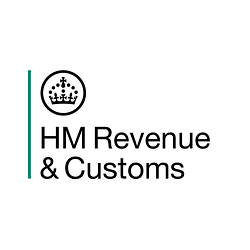
Press release -
Taxman brings in billions of tax upfront from tax avoiders
HM Revenue and Customs (HMRC) has collected £3 billion by forcing those under investigation for tax avoidance to pay up disputed tax immediately, the Financial Secretary to the Treasury, Jane Ellison announced today. The move continues the government clampdown on tax avoidance following last month’s announcement that enablers of tax avoidance will face tough new sanctions.
The 60,000 accelerated payment notices (APNs) issued since the new rules were introduced in 2014, have forced tax avoidance scheme users to pay up £3 billion of disputed tax upfront while their tax affairs are investigated by HMRC.
Under the scheme, which removes the economic advantage of taking part in tax avoidance by forcing them to pay up first and dispute later, a taxpayer with an outstanding tax bill has 90 days once an APN is received to pay up or make representation to HMRC if they consider the notice incorrect.
Speaking at HMRC’s stakeholder conference today the Financial Secretary to the Treasury said:
“I’m delighted to announce that we’ve collected £3 billion upfront since 2014 from people using avoidance schemes as HMRC puts its new powers to use.
She added: “The vast majority of avoidance schemes just don’t work. We’re determined to change the economics of tax avoidance by making it harder for the dishonest minority to cheat the system - collecting disputed tax upfront and tough new sanctions for enablers of tax avoidance will mean people will think twice.”
Jennie Granger, Director General for Enforcement and Compliance, HMRC, said:
“Accelerated payment notices are at the forefront of the Government’s drive to tackle tax avoidance schemes. Recipients must pay the tax owed within 90 days, changing the economics of tax avoidance.
“We want to encourage as many avoidance users as possible to come forward and settle their schemes with us”.
HMRC has successfully defended the accelerated payment rules in five out of five Judicial Review challenges. With HMRC winning almost 90% of avoidance litigation cases brought against it, the vast majority of individuals choose to settle their tax bill rather than entering into lengthy and costly litigation.
In the latest High Court ruling brought by tax avoidance scheme users, HMRC’s decision to issue APNs on a scheme that companies had used to try to reduce their tax bill was challenged by arguing that the tax authority hadn’t properly arrived at the amounts included in the APNs. The Court ruled in HMRC’s favour, meaning the APNs issued will stand, protecting an estimated £28 million in disputed tax.
This year has seen HMRC win several large scale tax avoidance cases, including a win against Eclipse 35 worth £635 million.
Notes for Editors
1.Accelerated payments were introduced in the Finance Act 2014 and National Insurance Contributions Act 2015.
2.They apply where avoidance schemes are subject to the Disclosure of Tax Avoidance Schemes rules or the General Anti-Abuse Rule, or where they are similar to a scheme that’s already been defeated in the courts.
3.An accelerated payment notice is issued to the taxpayer to collect the outstanding tax. Once they receive the notice, they have 90 days to pay or make representations to HMRC if they consider the notice is incorrect.
4.Taxpayers retain full appeal rights against the substantive tax liability. If the case is taken to litigation and the taxpayer ultimately wins, HMRC will repay the tax with interest.
5.Anyone wishing to settle an avoidance issue should contact HMRC immediately on 03000 530435.
6.Follow HMRC Press Office on Twitter @HMRCpressoffice.
7.HMRC's Flickr channel: http://www.flickr.com/hmrc.gov.uk
Topics
Categories
Issued by HM Revenue & Customs Press Office
HM Revenue & Customs (HMRC) is the UK’s tax authority.
HMRC is responsible for making sure that the money is available to fund the UK’s public services and for helping families and individuals with targeted financial support.

